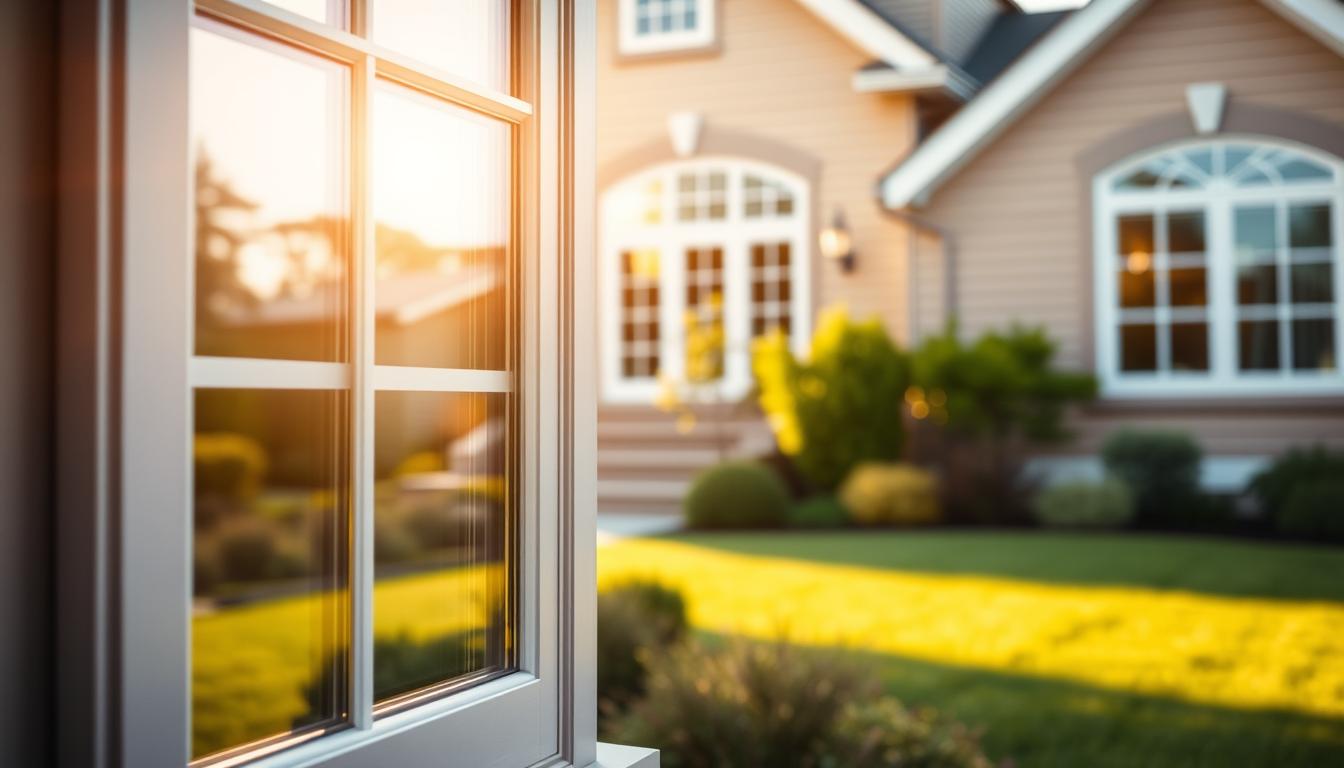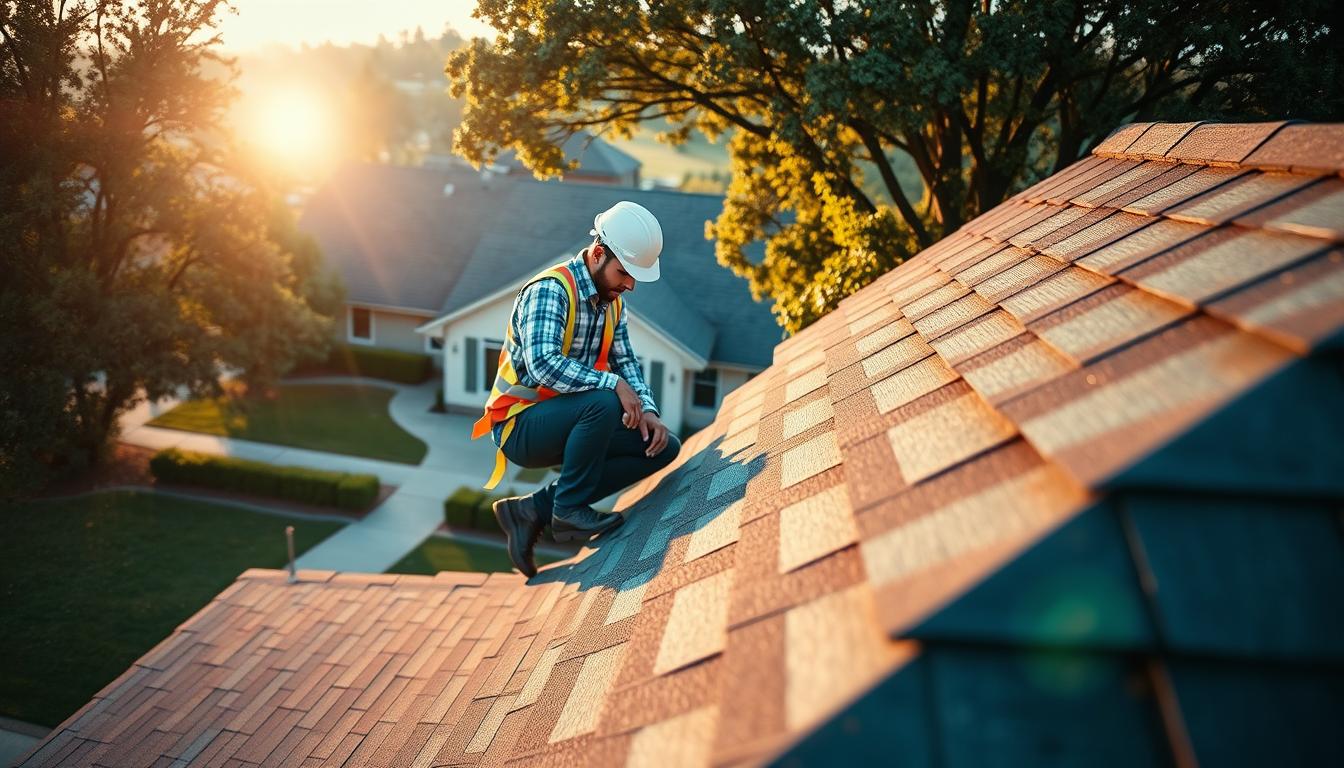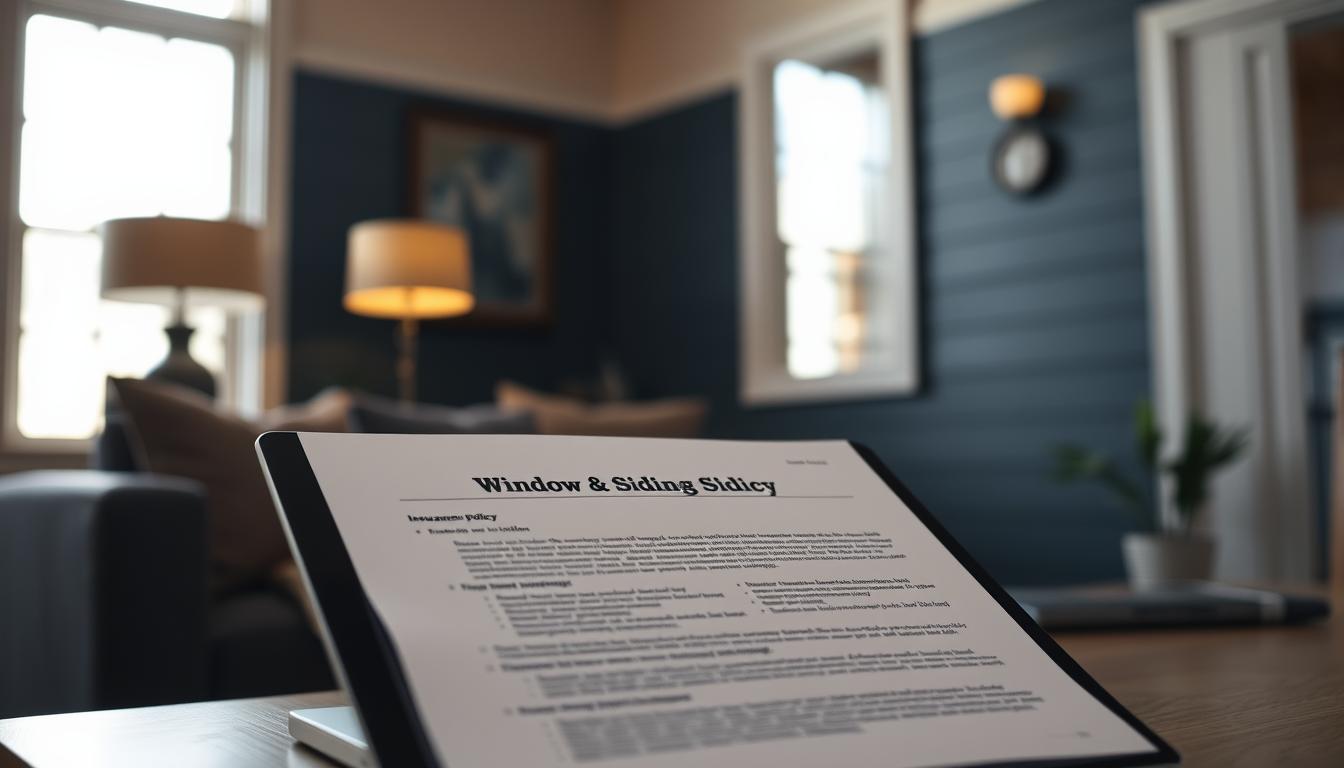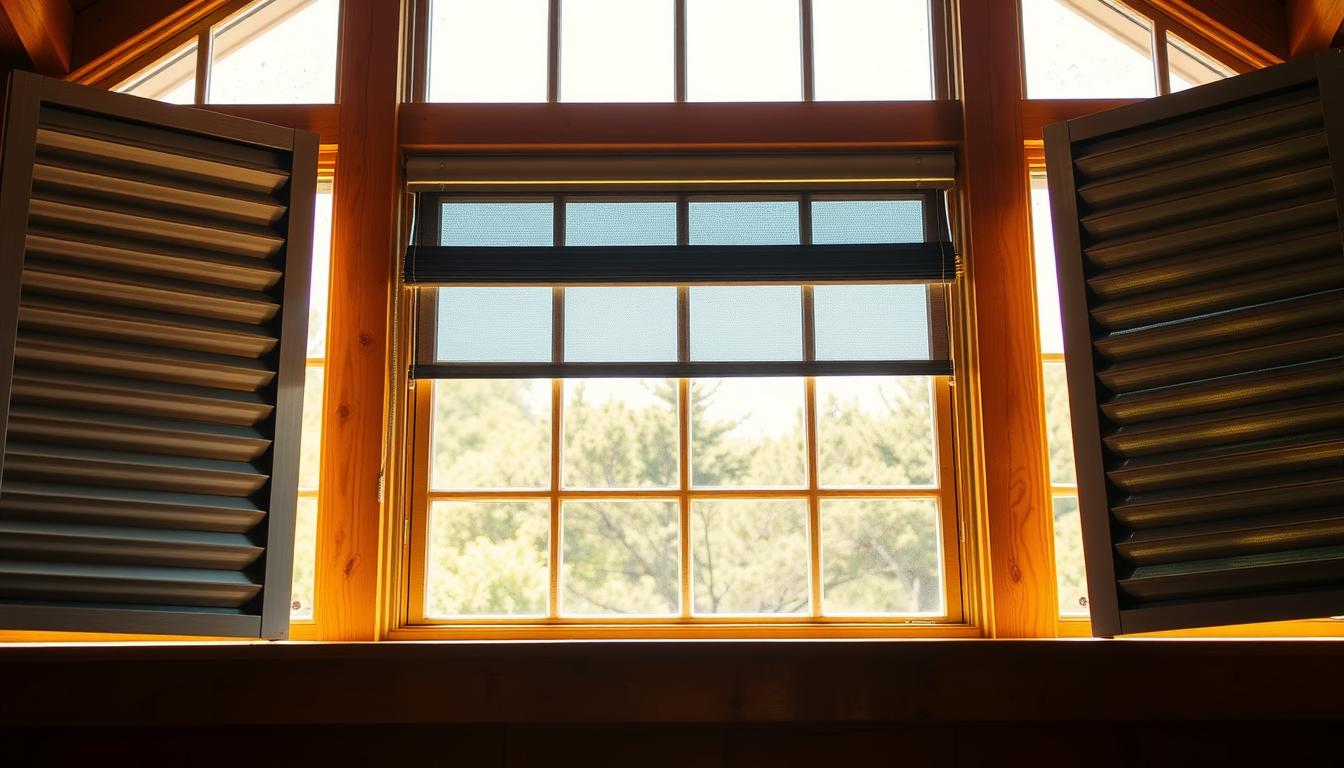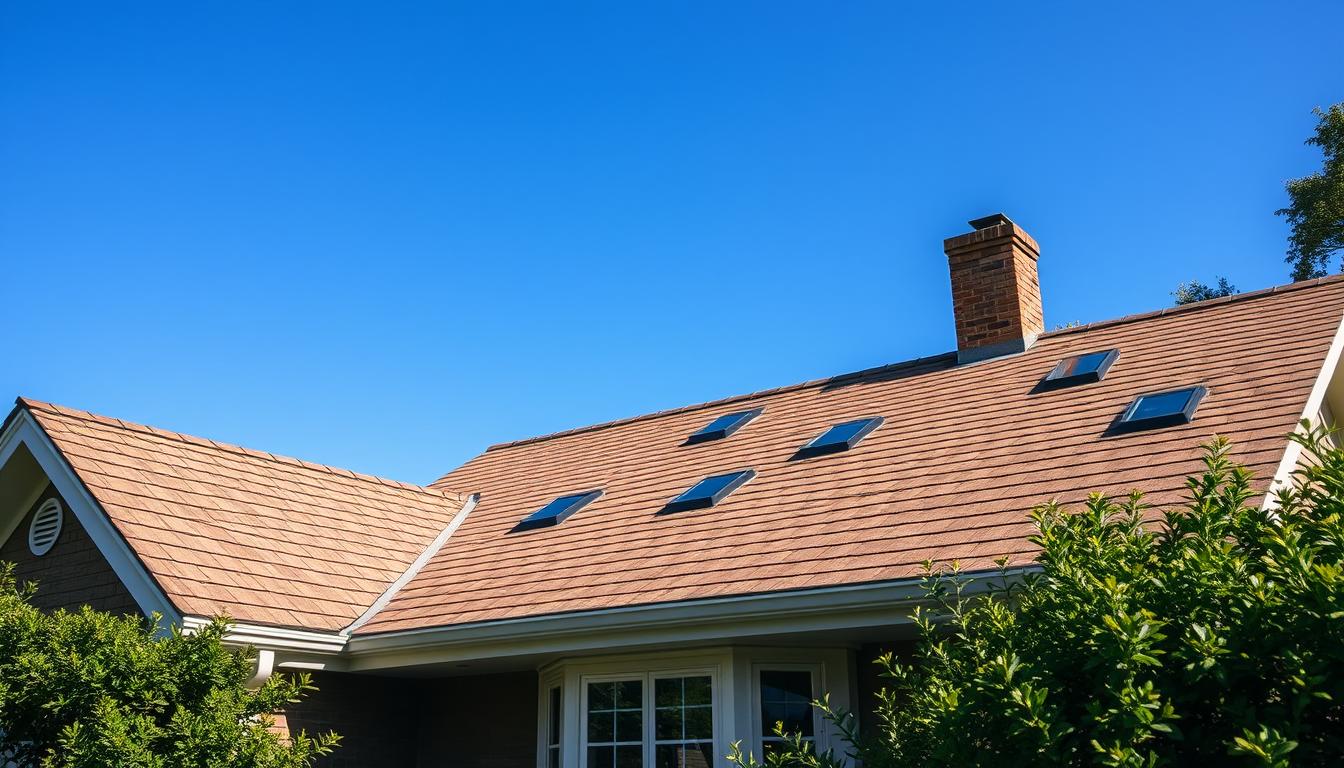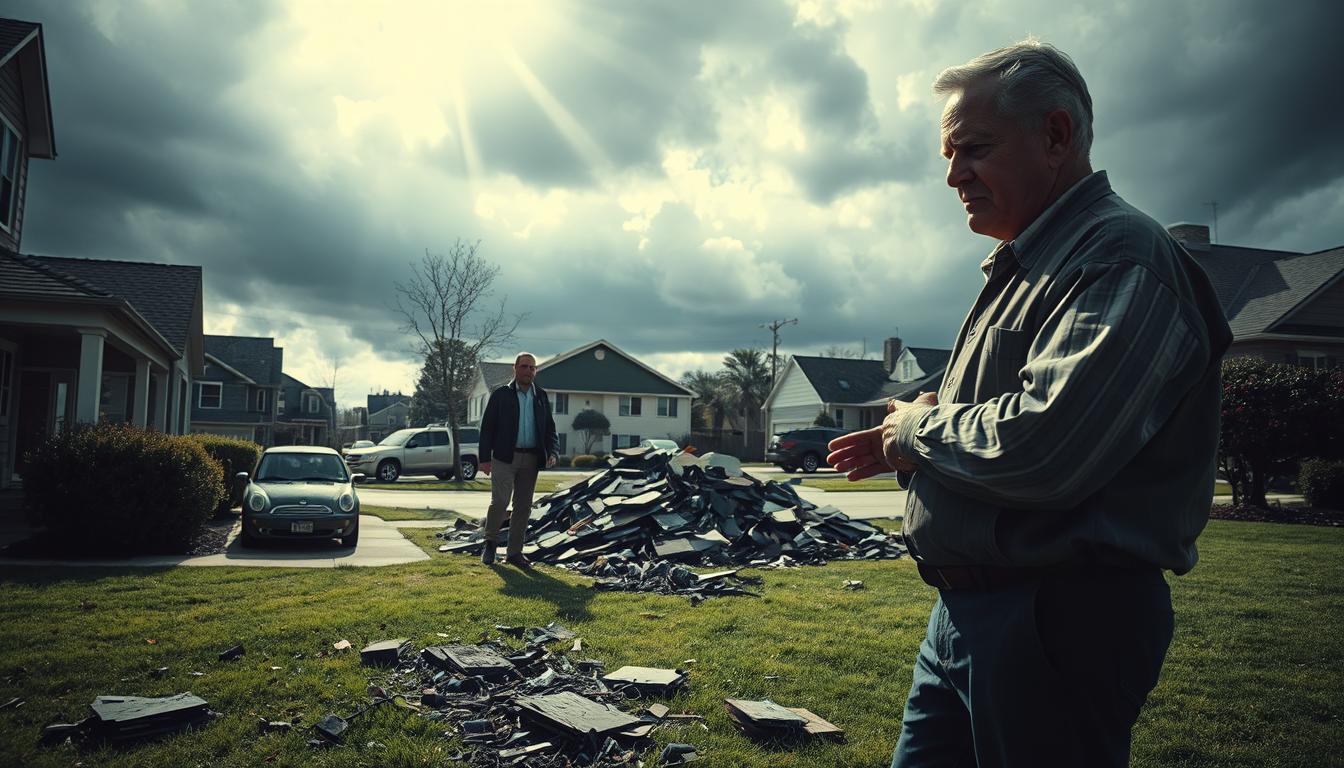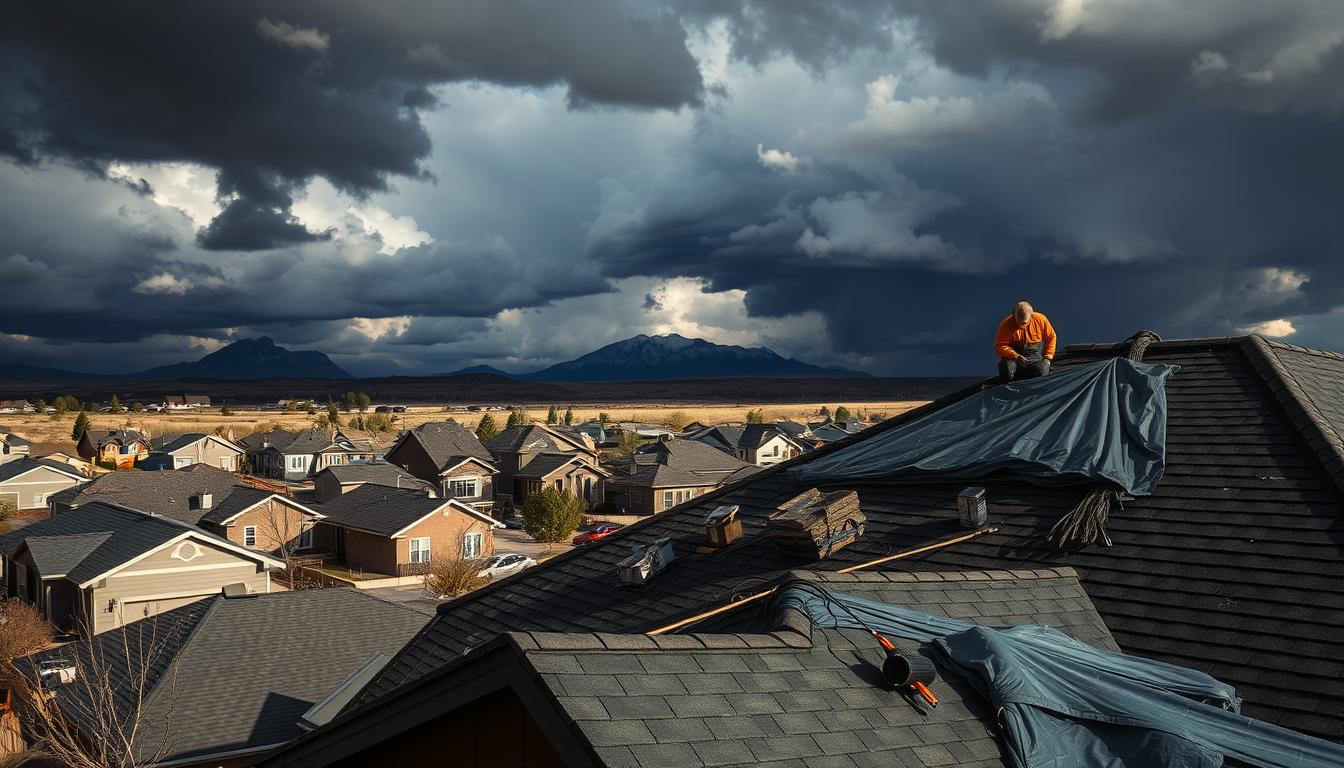Homeowners in Colorado Springs are finding out how energy-efficient windows can change their homes. The Rich Co Inc offers window replacements that can cut down on heating and cooling costs by up to 30%.
Today’s energy-efficient windows are more than just glass and frames. They are advanced systems made to make your home more comfortable, save on utility bills, and help the environment. Choosing the right windows can lead to big savings and better living spaces.
Replacing windows is not just about making your home look better. It’s a smart choice for your home’s performance. By picking the right windows and getting them installed by pros, you can make your home more comfortable and eco-friendly.
Key Takeaways
- Energy-efficient windows can reduce energy consumption by 25%-30%
- Professional installation is crucial for maximizing window performance
- Window replacements can save $71 to $501 annually on energy bills
- ENERGY STAR certification ensures reliable energy performance
- Homeowners typically recoup 78% of window replacement costs
Understanding Energy-Efficient Windows and Their Benefits
Energy-efficient windows are a big step in making homes more sustainable. They help keep your home comfortable and save on energy costs. These windows are more than just glass; they block heat loss and solar heat gain.

Today’s window technology lets homeowners save money and keep their homes cozy. Buildings use about 20% of the world’s energy. So, making windows more efficient is key to living green.
Heat Loss Prevention and Energy Savings
Energy-efficient windows save you money by keeping your home warm in winter and cool in summer. Here’s what you can gain:
- Potential annual energy bill savings of 12%
- Single-pane window replacements saving $101-$583 yearly
- Reduced heating and cooling costs
- Enhanced home comfort with consistent temperature regulation
Improved Home Comfort and Temperature Control
Modern windows are great at keeping your home at a steady temperature. They block up to 98% of UV rays and keep surfaces cool. This makes your home more comfortable.
Environmental Impact and Sustainability
Choosing energy-efficient windows helps cut down on carbon dioxide emissions. Heating and cooling use 40% of your home’s energy. These windows are a green choice for eco-conscious homeowners.
These windows offer more than just energy savings. They support sustainability goals and can give you a return on investment of up to 95%.
Key Components of High-Performance Window Systems
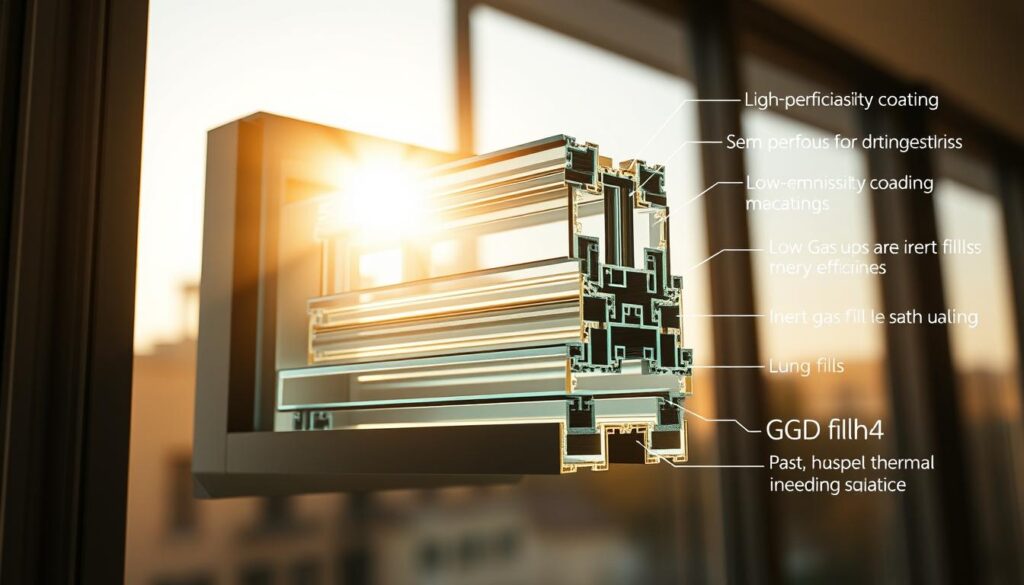
Window technology has changed a lot, making homes more energy-efficient. High-performance glazing is at the forefront of window design. It uses new materials and methods to keep your home warm or cool.
The main parts of high-performance window systems are:
- Low-e coatings: These special layers cut down on heat transfer
- Multiple glass panes filled with inert gas
- Advanced framing materials that keep heat out
- Spectrally selective technologies
Low-e coatings are really cool. They block 40% to 70% of heat while letting in all the light. These coatings cost a bit more, but they can cut energy loss by half.
Gases inside windows are also key. Argon gas is common because it’s affordable. Krypton gas is better for thinner windows. Both gases help keep heat from passing through, making windows more efficient.
Choosing the right windows is important. Fixed windows are the tightest. Other types like awning and hopper windows also have low air leakage rates. This is better than sliding windows.
Knowing about these components helps you choose the best windows. This improves your home’s comfort and saves energy.
Essential Window Performance Ratings and Certifications
Understanding window performance ratings can be tough for homeowners. Knowing these metrics helps you choose energy-efficient windows wisely.
The National Fenestration Rating Council (NFRC) sets standards for comparing window energy performance. These ratings are key to understanding how windows perform in various settings.
ENERGY STAR® Certification Requirements
ENERGY STAR certified windows must meet high energy efficiency standards. The US Environmental Protection Agency sets these rules. To qualify, windows need to excel in several areas:
- Low U-factor ratings for better heat loss prevention
- Controlled Solar Heat Gain Coefficient (SHGC)
- Minimal air leakage
Understanding NFRC Ratings
The NFRC offers detailed ratings for windows. These ratings help you make smart choices. Key ratings include:
- U-factor ratings: Show how much heat is lost (lower is better)
- Solar Heat Gain Coefficient: Shows how much solar radiation enters
- Visible Transmittance: Measures how much natural light gets in
- Air Leakage: Checks how well the seal works
Critical Performance Metrics
U-factor ratings are crucial for energy efficiency. Windows with lower U-factors keep heat in better. This can save up to 13% on utility bills.
When picking windows, think about your local climate and energy needs. ENERGY STAR certified windows are a good starting point for top-notch window technology.
Choosing the Right Glass Technology for Your Climate

Choosing the right energy-efficient windows is key. It depends on knowing how different glass technologies work in various climates. Homeowners can make their homes more comfortable and energy-efficient by picking windows that match their local weather.
Different glass types offer unique benefits for handling solar heat and keeping warm. Knowing these options helps homeowners make smart choices when replacing windows.
- Single-pane glass: Least efficient option, common in older homes
- Double-pane glass: Improved insulation with argon-gas blend
- Triple-pane glass: Most energy-efficient window technology available
When picking window glass, climate matters a lot. In places like Colorado Springs, advanced glass technologies are essential. They help keep homes comfortable and lower energy bills.
Important things to look at include:
- Solar Heat Gain Coefficient (SHGC)
- U-Factor ratings
- Low-E coating performance
- Gas-filled air spaces
Professional window experts can guide homeowners through these choices. They ensure the best energy efficiency for their area. By picking the right glass, homes can cut heating and cooling costs by 12% each year.
Professional Installation and Its Impact on Efficiency
Choosing the right windows is just the start. How well they’re installed can greatly affect your home’s energy use and comfort. A pro job can make a big difference in saving energy.
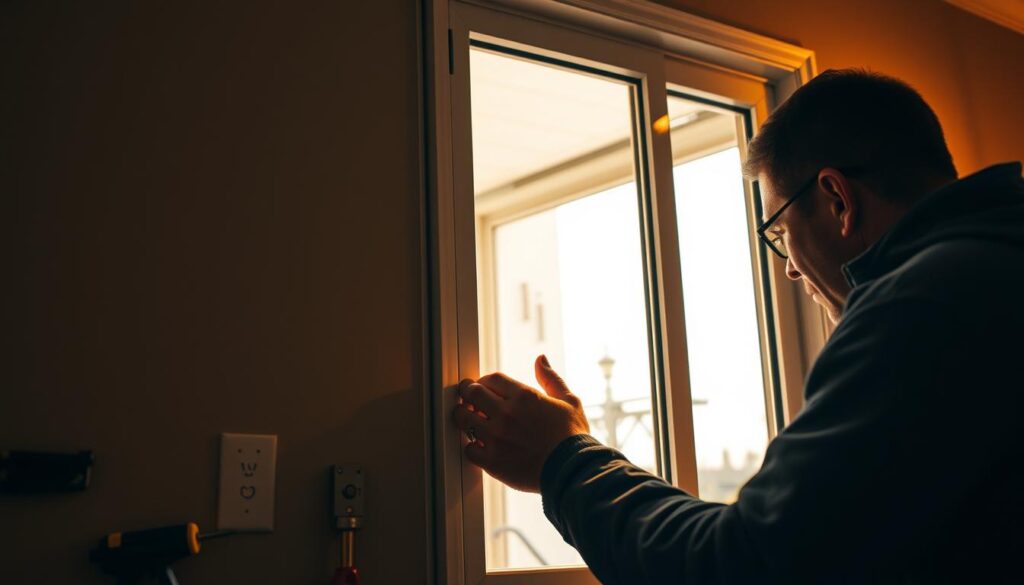
Getting the right fit is key to stopping air leaks. Many homeowners don’t realize how important it is to have experts place and seal windows correctly.
Critical Installation Techniques
- Precise measurement of window openings
- Thorough cleaning of existing frame surfaces
- Using high-quality weatherstripping
- Applying professional-grade caulking
- Ensuring perfect vertical and horizontal alignment
Common Installation Mistakes to Prevent
- Overlooking frame preparation
- Improper shimming and leveling
- Inadequate insulation around window edges
- Skipping comprehensive air leak testing
Pro installation can cut energy use by up to 30%. Bad installation can waste 10-25% of heating and cooling costs. Expect to save $125 to $465 a year on energy bills with the right windows.
Warranty Protection
Most window makers need a pro install to keep warranties valid. About 80% of warranties rely on certified installers. Getting a pro to install your windows protects your investment and saves energy.
For top-notch window installation in Colorado Springs, call The Rich Co Inc at (719) 287-5385. They ensure your windows work their best for years to come.
Cost Considerations and Return on Investment
Getting energy-efficient windows is a smart choice for homeowners. The upfront cost might seem high, but the long-term savings are worth it. Energy.gov shows that windows can affect up to 35% of a home’s energy use.
Here’s a look at the financial side of energy-efficient windows:
- Initial investment ranges from $300 to $1,200 per window
- Total window replacement costs average around $6,000
- Potential annual energy savings of approximately $500
- Possible home value increase of up to $14,000
The ROI for these windows is quite good. Homeowners can get back about 70-75% of the cost when selling. The Cost vs. Value Report shows these windows save money and boost property value.
Some key financial benefits are:
- Up to 12% savings on heating and cooling costs
- Potential tax credits for Energy Star® certified windows
- Increased home marketability
- Long-term utility bill reduction
With savings of $19,000 over ten years and an ROI of 86.7%, these windows are a smart choice. They’re great for those who care about their budget and the planet.
Window Frame Materials and Their Energy Performance
Choosing the right window frame material is key to keeping your home warm. Different materials have their own strengths and weaknesses when it comes to saving energy. Vinyl window frames are a top pick for those looking for affordable, durable, and well-insulated options.
Energy performance varies a lot among frame materials. Vinyl frames are the best at keeping heat in, while fiberglass is close but costs more. Wood frames are loved for their natural warmth but need a lot of care to stay in good shape. New materials like Fibrex® composite frames block heat really well, outdoing aluminum frames by a lot.
The Rich Co Inc suggests looking closely at each material’s features. Vinyl frames are great for saving energy and are easy on the wallet. They handle temperature changes well without losing shape. Fiberglass frames are strong and look good but cost more. Wood frames are classic but need constant care to avoid damage and heat loss.
Choosing the right window frame depends on your climate, budget, and what you expect in the long run. Getting expert advice can help you make the best choice. This ensures your home stays cozy and energy-efficient for years.

